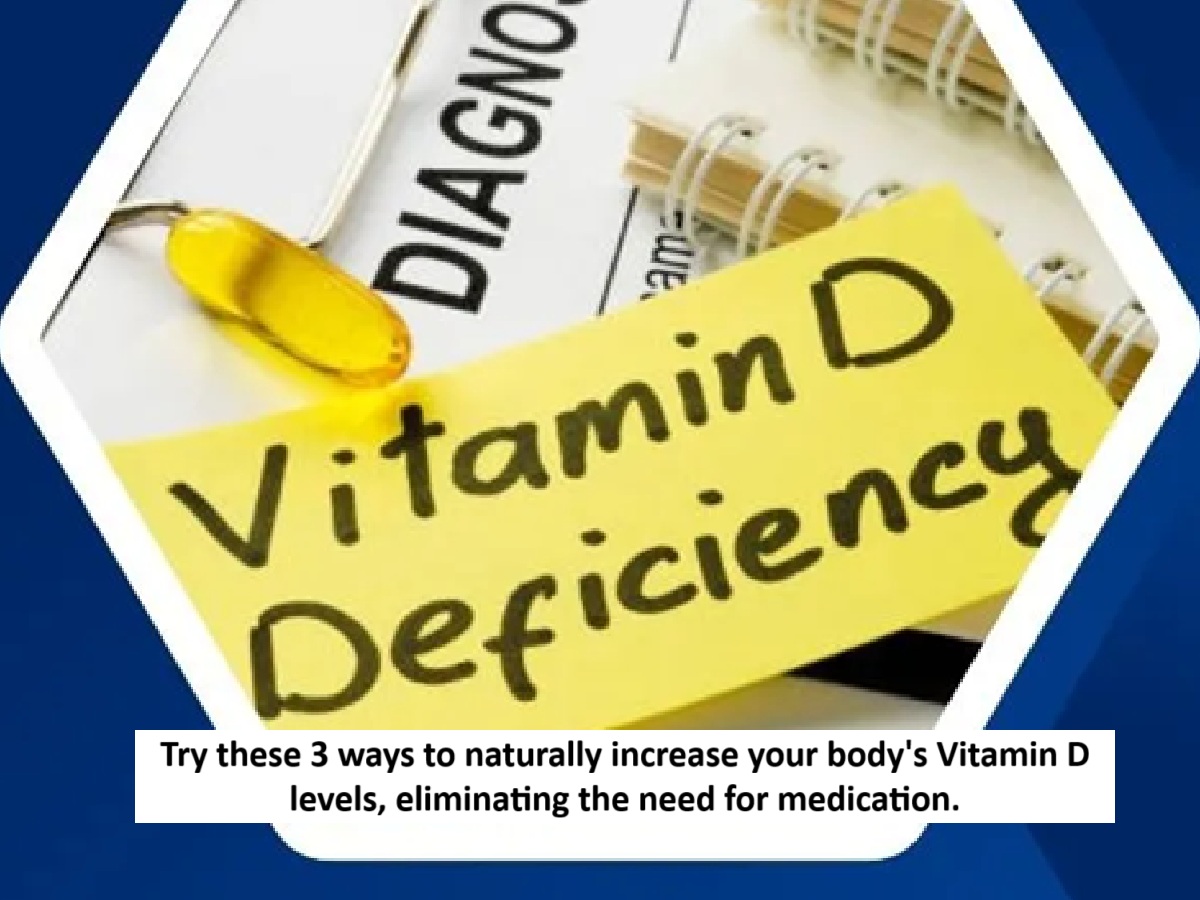
News Topical, Digital Desk : Vitamin D is a vital nutrient for our bodies. Yet, most people are deficient in it. A low vitamin D level weakens the immune system and can lead to various problems (Vitamin D Deficiency Symptoms) such as depression, hair loss, fatigue, bone pain, and more. Therefore, it's important to avoid vitamin D deficiency.
People often turn to supplements to address vitamin D deficiency, but it can also be addressed naturally (Natural Ways to Boost Vitamin D). Let's explore three natural remedies to address vitamin D deficiency.
Sun exposure at the right time
Sunlight is the best natural source of vitamin D. When our skin is exposed to the sun's UV-B rays, it begins converting cholesterol into vitamin D. However, it's important to consider the right time and duration of sun exposure.
- Right time: Sunlight between 10 am and 3 pm is considered most beneficial, because during this time the UV-B is highest.
- Duration: About 15-20 minutes of sun exposure each day is sufficient. This includes exposing your hands, feet, and face to direct sunlight without sunscreen.
- Precautions: Prolonged exposure to strong sunlight can cause sunburn, so adhere to the time limit. You may want to reduce the time during the summer.
Vitamin D-rich diet
Although diet can't provide as much vitamin D as sunlight, including certain foods in your diet can help make up for the deficiency. These foods fall into two broad categories: natural sources and fortified foods.
- Natural sources: Fatty fish like salmon, tuna, and mackerel are excellent sources of vitamin D. Egg yolks, liver, and some mushrooms also contain significant amounts of vitamin D. Mushrooms are an excellent option for vegetarians.
- Fortified foods – Many foods like milk, yogurt, orange juice, and cereals are currently available on the market that are fortified with vitamin D. Be sure to check the labels on the packages.
Regular exercise and outdoor activities
Physical activity and a healthy lifestyle are directly linked to vitamin D levels. Exercise is not only good for your health, but it also increases your body's ability to synthesize and utilize vitamin D.
- Outdoor activities – Get outside daily for activities like walking, jogging, cycling, or gardening. This will give you the benefits of both exercise and sunshine.
- Weight management – Obesity can interfere with the absorption of vitamin D, as it is a fat-soluble vitamin. It is important to manage your weight through regular exercise and a healthy diet.
--Advertisement--

 Share
Share



